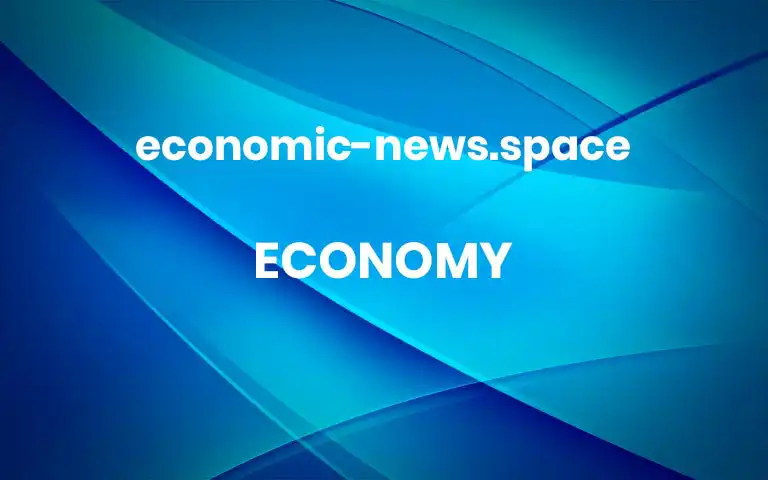The penalties will affect Russia’s biggest banks, its weapons industry, its largest energy company and families close to President Vladimir V. Putin. The country’s stock market has plummeted.WASHINGTON — President Biden, vowing to turn President Vladimir V. Putin of Russia into a “pariah,” announced tough new sanctions on Thursday aimed at cutting off Russia’s largest banks and some oligarchs from much of the global financial system and preventing the country from importing American technology critical to its defense, aerospace and maritime industries.The package unveiled by the U.S. government is expected to ripple across companies and households in Russia, where anxiety over Mr. Putin’s full-scale invasion of Ukraine has already begun setting in. The nation’s stock market fell more than 30 percent on Thursday, wiping out a huge amount of wealth.The new U.S. sanctions include harsh penalties against the two largest Russian financial institutions, which together account for more than half of the country’s banking assets.U.S. officials are also barring the export of important American technology to Russia, which could imperil industries there. In addition, the United States will limit the ability of 13 major Russian companies, including Gazprom, the state-owned energy conglomerate, to raise financing in Western capital markets. And it is penalizing families close to Mr. Putin.The sanctions against the financial giants will cause immediate disruptions to Russia’s economy but are manageable over the longer term, analysts said. The technology restrictions, on the other hand, could cripple the ability of certain Russian industries to keep up.“Putin chose this war, and now he and his country will bear the consequences,” Mr. Biden said in remarks from the East Room of the White House. “This is going to impose severe cost on the Russian economy, both immediately and over time.”It was the second round of American sanctions imposed on Russia this week, following a more modest tranche that Mr. Biden announced on Tuesday after Mr. Putin’s government recognized two Russia-backed insurgent enclaves in eastern Ukraine as independent states.It was accompanied by a blizzard of sanctions from other countries announced on Thursday. Britain adopted penalties largely in line with the American ones, with additions such as barring Aeroflot, the Russian airline, from operating in its territory. The European Union announced measures including bans on large bank deposits in the European Union and halts in many technological exports to Russia, including semiconductors. Japan and Australia also unveiled various sanctions.One question in the days and weeks ahead is whether the United States and its European allies can stay in lock step on Russia’s actions, as they claim they will. Secretary of State Antony J. Blinken spoke on both Wednesday and Thursday with the European Union’s top diplomat, Josep Borrell Fontelles, a sign of the intense efforts to coordinate a joint response.The new suite of sanctions from Washington includes some of the tougher penalties that U.S. officials had said were being considered. There had been debate about whether constricting the operations of Russia’s biggest banks and other large companies would cause too much pain to ordinary Russians and to citizens in other countries.Russia has a $1.5 trillion economy, the world’s 11th-largest. The global economy remains precarious at the start of the third year of the pandemic, and many governments are grappling with the highest inflation rates in decades. The price of crude oil has been surging this week because of Mr. Putin’s actions.“I know this is hard, and that Americans are already hurting,” Mr. Biden said on Thursday. “I will do everything in my power to limit the pain the American people are feeling at the gas pump. This is critical to me.”But he added that Mr. Putin’s aggression could not go unanswered. “If it did, the consequences for America would be much worse,” he said. “America stands up to bullies. We stand up for freedom. This is who we are.”Residents lined up at a bus station in Kyiv, Ukraine’s capital, on Thursday.Emile Ducke for The New York TimesDaleep Singh, the deputy national security adviser for international economics, told reporters that over time, the sanctions would “translate into higher inflation, higher interest rates, lower purchasing power, lower investment, lower productive capacity, lower growth and lower living standards in Russia.”But it is unclear whether the sanctions will compel Mr. Putin to halt his offensive, in which dozens of Ukrainian soldiers and civilians have already been killed, according to Ukrainian officials. If Mr. Putin pushes forward, then the sanctions will serve as a punishment, Mr. Blinken has said.Some analysts are skeptical that the pain of the sanctions will break through to Mr. Putin, who has isolated himself during the pandemic, even from some of his close advisers.Alexander Gabuev, a scholar at the Carnegie Moscow Center, said the Russian leader and the top officials around him had adopted a bunker mentality, understanding that their lives and wealth depend on their status at home, not within Western nations. They also see themselves as being on the frontline of an ideological contest with the United States and its allies, he said.Furthermore, the Russian government adopted fiscal policies to shield the country’s economy after the United States and Europe imposed sanctions in 2014 following Mr. Putin’s first invasion of Ukraine, and some top security officials and oligarchs have profited off the changes.Edward Fishman, who oversaw sanctions policy at the State Department after Russia annexed Crimea in 2014, said he was surprised at the breadth of the new U.S. sanctions beyond the financial and technology sectors. He said the measures limiting access to capital markets for Russian state-owned enterprises in industries as varied as mining, metals, telecommunications and transportation “cut across the commanding heights of the Russian economy.”Even as Russia’s stock market plunged and the ruble fell to a record low against the dollar, the country may avoid all-out financial panic. Sergey Aleksashenko, a former first deputy chairman of the Central Bank of Russia and former chairman of Merrill Lynch Russia, said the financial measures were likely to inflict serious but ultimately bearable pain.“They will be able to manage what is related to the financial sector,” Mr. Aleksashenko said. “Maybe it will be complicated, maybe it will be expensive — but it’s doable.”More damaging, albeit over a longer term, Mr. Aleksashenko said, would be the new technology export controls.The export controls imposed by the Commerce Department are aimed at severing the supply of advanced technologies to Russia, such as semiconductors, computers, lasers and telecommunications equipment.The measures are expected to stop direct technological exports from American companies to Russia, potentially hobbling the Russian defense, aerospace and shipping industries, among others. They also go beyond previous sanctions issued by the U.S. government by placing new export limits on products that are manufactured outside the United States but use American equipment or technology.The administration said the measures, taken in concert with allies, would restrict more than $50 billion of key inputs to Russia. The country imported $247 billion of products in 2019, according to the World Bank.“This is a massive set of technology controls,” said Emily Kilcrease, a senior fellow at the Center for a New American Security.Understand Russia’s Attack on UkraineCard 1 of 7What is at the root of this invasion? More




